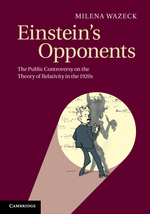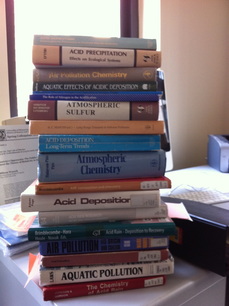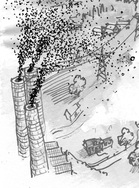My research interests are interdisciplinary and broad. I have an academic background in history, political science, and business administration, and I use my expertise in these disciplines to approach topics in the history of science from a wide range of perspectives. In 2009 I was awarded the Georg Uschmann History of Science Award from the German National Academy of Sciences for my “innovative methodological approach” to the history of science. I have broad experience with interdisciplinary research collaborations. For my recent project I joined the Department of Environmental Sciences at the University of East Anglia; a unique opportunity for me as a historian of science to collaborate closely with atmospheric scientists.
Einstein's opponents

I have worked extensively on the controversy on Albert Einstein’s theory of relativity in the 1920s, the history of science popularization, and popular knowledge about nature in 19th and early 20th century Germany. I am interested in what people think about science, in their knowledge and concepts about nature, and in the reasons why some major scientific theories and findings such as relativity theory, evolution, or climate change trigger a strong opposition. Read more ...
From Einstein to Air Pollution

Having been a research scholar at the Max Planck Institute for the History of Science for more than six years, I had the opportunity to participate in several of the Institutes major collaborative research projects, including the project on Reorganizing Knowledge in Developed Science: The Rise and Decline of the Mechanical Worldview (completed), and on Globalization Processes of Knowledge (ongoing). It was within the context of the Globalization project that I became interested in the recent history of the environmental sciences and the history of global environmental problems. I consider environmental issues such as air pollution and climate change as some of the most pressing questions of the present, and I think that a historical reflection on how major environmental issues emerge as topics for research, on how they are framed in political debates, and on the varying interrelations of scientific knowledge, uncertainty and decision making helps us to understand better the challenges we face today. In 2010, I left the Max Planck Institute to take up a postdoctoral position in the NSF sponsored project Assessing Assessments: A Historical and Philosophical Study of Scientific Assessments for Environmental Policy in the Late 20th Century, a collaborative project under the supervision of professors Dale Jamieson, Michael Oppenheimer, and Naomi Oreskes.
This is what I brought back from my first visit to the NYU library: 1980s atmospheric chemistry and acid rain reports and textbooks! Sources for my research on the state of knowledge about acid rain in the 1980s.
This is what I brought back from my first visit to the NYU library: 1980s atmospheric chemistry and acid rain reports and textbooks! Sources for my research on the state of knowledge about acid rain in the 1980s.
History of Transboundary Air Pollution
 (c) Laurent Taudin
(c) Laurent Taudin
My current project developed from my postdoctoral research and deals with the history of the science, modeling and politics of transboundary air pollution in North America and Europe. Based on archival work and interviews I analyze how scientists approached and framed transboundary air pollution, and I aim to understand the interrelations of large-scale air pollution research and modeling with political and cultural contexts in North America and Europe. Read more ...